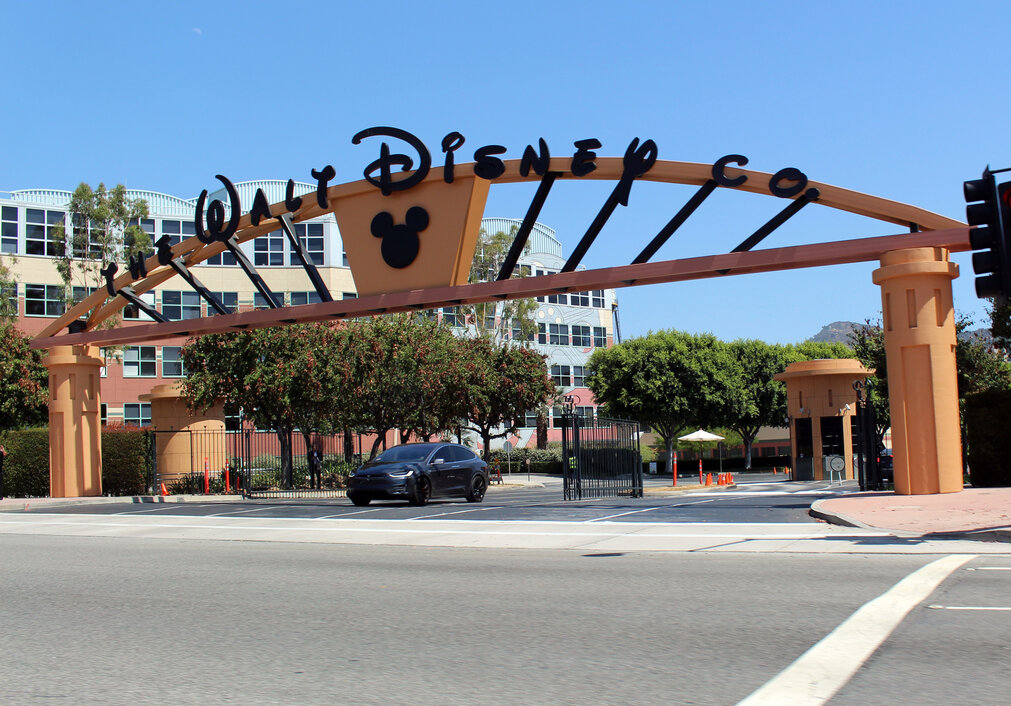Just as companies like Zoom and Peloton enjoyed massive growth in 2020 due to some unique circumstances – the rise of telecommuting and working out at home during the pandemic, respectively – other businesses saw their fortunes head south for a lot of the same reasons. Small restaurants with limited outdoor seating, performing arts venues, shared workspaces and more were all pretty much immediately hosed as soon as shutdown and capacity restriction orders took hold.
Sometimes it just comes down to sheer luck and being in the right place at the right time. The impact on small businesses in particular will likely be the lasting memory of 2020.
However, things were more mixed for companies with diversified businesses, like Disney.
Near the end of last year, Disney announced a 45% drop in annual revenues to just $8.1 billion, topped off by a whopping 82% plunge in the fourth quarter to just $600 million. Compare that to the $70 billion in revenue and $15 billion in operating income that the company reported in fiscal 2019. After taxes, this means that one of the largest entertainment companies in the world lost $700 million between July and September 2020.
But think about the variety of products that Disney offers.
- Theme parks… shuttered during the pandemic and crippled even when they could reopen by the fact that many Americans still aren’t yet ready or feel safe to travel.
- Movies… Theaters have been closed across the country for months, disrupting the summer blockbuster season and forcing a number of studios, including Disney, to postpone the release of some of their biggest potential hits.
- Media networks… The company’s owned traditional networks like ESPN, ABC, Hulu, the Disney Channel and more have accounted for more than 40% of its overall revenue in recent years, but the ongoing cord-cutting trend and increased segmentation across the cable and pay TV landscape has threatened the stability of even this segment.
Even with the crippling of the theme park, movie, and media networks during the pandemic, Disney’s fortuitous launch of the streaming service Disney+ in late 2019 turned out to be prescient.
As of the end of 2020 there were 73 million global subscribers to Disney+, effectively making it the #2 streaming service in the world after Netflix less than 12 months after launch. That’s no joke. (And yes, the direct-to-consumer platform is expected to lose money until 2024, but it only lost about $2.8 billion last year so it could have been worse.)
The bright spot that is Disney+ on the company’s balance sheet is a clear indication of the value of original and exclusive IP. A low entry price of just $6.99, coupled with the bundle offer with ESPN+ and Hulu, helped Disney quickly ramp up the audience for the service, and its classic in-house offerings (looking at you, Frozen) along with key licensed content from existing franchises like Marvel and Lucasfilm, plus new and original content (Hamilton, The Mandolorian, etc.), really put it over the top. That intellectual property strategy has made subscribing to Disney+ a no-brainer, as evidenced by the millions of people who have taken that step in the last year.
IP Lessons from a Transformative Year for Disney
Yes, luck matters.
Sometimes the best ideas are no match for being in the right place at the right time. Disney was lucky in that it was launching Disney+ into the teeth of a year that saw pretty much everyone stuck at home looking for something to watch.
Innovation matters too.
Disney would have squandered this opportunity if it wasn’t already building out new products ahead of customer demand. Smart companies should consider how their product offerings can be diversified or, if you’re a hyper-focused product innovator in the way investors recommend, then think about how your product could be pivoted to address a different market in case your primary target evaporates. Although it’s impossible to predict the future, especially during a global pandemic, it is possible to hope for the best while preparing for the worst.
And make sure you’ve done your customer validation homework and focus on offering products with actual market demand. Be like Disney — not Quibi.
Protect your competitive advantage.
Even the companies that grew during the pandemic are today facing new competitors and supply chain issues. As part of any preparation strategy, anticipate how you can keep your competitors from eating your lunch and make sure your product development pipeline is robust. Like Disney’s exclusive license deals to provide unique content, ensure you have measures in place to protect your product and business.
Ready to get started? Contact us today to learn more about how your IP can help grow your business.





